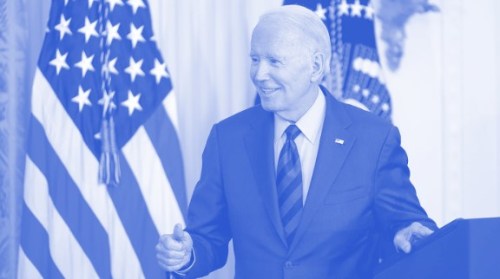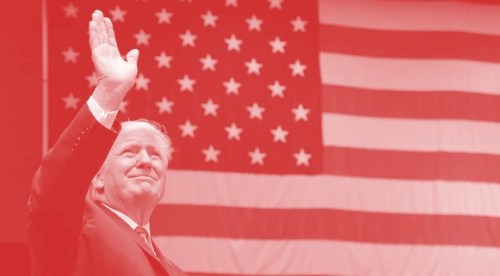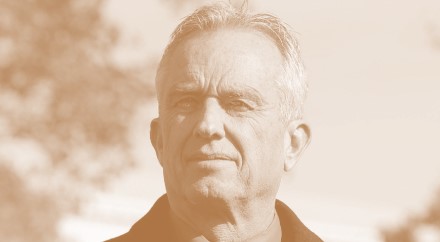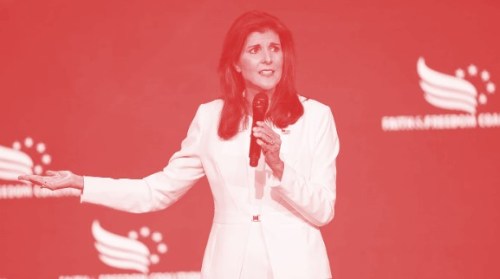DeSantis seeks to seize momentum from strong debate

Florida Gov. Ron DeSantis (R) is looking to seize on the momentum from his strong performance at the fourth debate as he aims to solidify his place as the No. 2 Republican in the primary.
Unlike his past presidential debates, DeSantis avoided fading into the background Wednesday in Alabama and went on offense against Nikki Haley, his most formidable non-Trump rival. A post-debate Washington Post/Ipsos poll showed a plurality of voters saying DeSantis won the debate. DeSantis’s campaign manager celebrated the governor’s debate performance in a statement on Wednesday, calling him “the only strong conservative on stage.”
But questions still loom about how DeSantis will be able to capitalize on that momentum, with Iowa less than 6 weeks away and Trump still the clear front-runner.
“He did have a good debate, there’s no doubt about that,” said David Kochel, an Iowa-based Republican strategist. “There is still time in Iowa. He has an organization for sure.”
DeSantis’s campaign and its allies have made Iowa a top priority. Earlier this month, the Florida governor completed the final stop of his tour of all of Iowa’s 99 counties, also known as the “Full Grassley,” in honor of Sen. Chuck Grassley (R-Iowa). Along the way, the Florida governor has garnered endorsements from the state’s Gov. Kim Reynolds (R) and prominent Iowa evangelical leader Bob Vander Plaats.
According to AdImpact, the newest pro-DeSantis super PAC Fight Right has spent over $1.7 million on television advertisements, including $1.5 million in Iowa markets. The other major pro-DeSantis super PAC, Never Back Down, spent $4 million from Oct. 1 to Nov. 14, according to AdImpact. DeSantis has also wrapped up 42 state legislative endorsements in the state.
“No one else is close,” DeSantis’s communication director Andrew Romeo told The Hill on Wednesday following the debate. “That’s the type of grassroots support you need to win an Iowa caucus.”
The state was also the governor’s first stop following debate, with a meet-and-greet hosted by Never Back Down in Cedar Rapids.
“He’s doing all of the things he’s supposed to be doing,” Kochel said. “The question is, can he get close enough to Trump to get momentum? Iowa is often a place for upsets.”
Former Sen. Rick Santorum (R-Pa.) notably surged from polling in the single digits in November 2011 to winning the Iowa caucus in January 2012. Four years earlier, in 2008, former Arkansas Gov. Mike Huckabee (R), who was virtually unknown before that particular presidential cycle, won the Iowa caucuses. That same year, then-Illinois Sen. Barack Obama (D) pulled off a major upset against then-New York Sen. Hillary Clinton (D) in the Democratic Iowa Caucuses.
Still, DeSantis and Haley don’t have much time to close the gap with former President Trump in the polls. According to the RealClearPolitics polling average of the Iowa Republican caucus, Trump leads with 47.3 percent support, while DeSantis trails at 18.7 percent support. Haley comes in with 15.7 percent support.
Additionally, Iowa has a mixed track record of predicting who ultimately wins presidential nominations.
In 1980, then-California Gov. Ronald Reagan (R) lost in Iowa to George H.W. Bush, but it was Reagan who later went on to become the nominee, with Bush serving as a his vice president. Reagan won the caucus four years earlier but lost the Republican primary to former President Gerald Ford, who ended up losing his reelection bid. Former President George W. Bush was the last Republican to win the caucuses and go on to secure the nomination.
And there are questions as to how DeSantis will be able to make the hard pivot from Iowa, a bastion of cultural conservatism, to New Hampshire, which is arguably more libertarian.
Romeo said the momentum the campaign would have coming out of Iowa, if they were to win the caucus, would be enough for them to surge in New Hampshire.
“That’s why the governor continues to campaign there and spend time there as well,” Romeo said, referring to the Granite State.
DeSantis supporters in New Hampshire also note that the differences between Iowa and New Hampshire’s GOP electorates won’t make a difference when it comes to candidates.
“I still don’t think that cultural conservatism is a problem. That’s not something that New Hampshire voters vote on,” said New Hampshire state House Majority Leader Jason Osborne (R), who is supporting DeSantis. “They can take it or leave it but they’re not opposed to it. What they care about is he is the guy who delivers results, he gets s–t done and he’s the guy that can fix Washington.”
But before the Iowa caucus and the New Hampshire primary, DeSantis and the other candidates will likely participate in at least two more debates. On Thursday, CNN announced it would host two debates in Iowa and New Hampshire. Additionally, DeSantis is slated to take part in a CNN town hall in Des Moines on Tuesday.
Republicans say that these forums matter because undecided voters are tuning in.
“It mattered,” Kochel said, referring to Wednesday’s debate. “I think the Iowa debate in particular on Jan. 10 will matter.”
“It is quite possible that a majority of Iowans will still not have completely made up their minds by that time,” he said.
Copyright 2023 Nexstar Media Inc. All rights reserved. This material may not be published, broadcast, rewritten, or redistributed.





